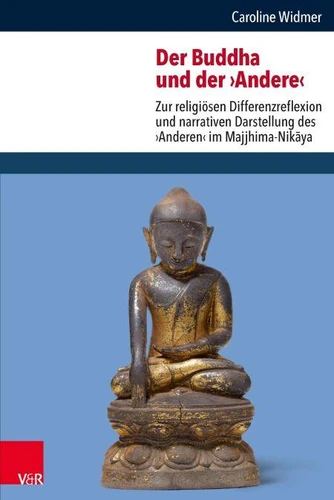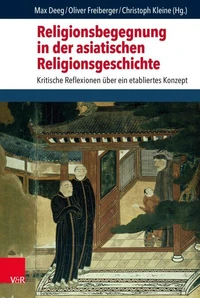Der Buddha und der ›Andere‹. Zur religiösen Differenzreflexion und narrativen Darstellung des ›Anderen‹ im Majjhima - Nikaya
Par :Formats :
Disponible dans votre compte client Decitre ou Furet du Nord dès validation de votre commande. Le format PDF est :
- Compatible avec une lecture sur My Vivlio (smartphone, tablette, ordinateur)
- Compatible avec une lecture sur liseuses Vivlio
- Pour les liseuses autres que Vivlio, vous devez utiliser le logiciel Adobe Digital Edition. Non compatible avec la lecture sur les liseuses Kindle, Remarkable et Sony
 , qui est-ce ?
, qui est-ce ?Notre partenaire de plateforme de lecture numérique où vous retrouverez l'ensemble de vos ebooks gratuitement
Pour en savoir plus sur nos ebooks, consultez notre aide en ligne ici
- Nombre de pages434
- FormatPDF
- ISBN978-3-647-54038-2
- EAN9783647540382
- Date de parution19/11/2014
- Protection num.pas de protection
- Taille3 Mo
- Infos supplémentairespdf
- ÉditeurVandenhoeck & Ruprecht
Résumé
Many suttas of the P?li Canon report on how Buddha conversed with Brahams, ascetics and housekeepers about religious matters. In this volume Caroline Widmer studies the extant literary traces concerning religious differences. Perhaps the oldest complete transmission concerning Buddhism is found in the P?li Canon, which contains literary-narrative disputes with other religions from an emic perspective.
The suttas describe, for example, how Buddha met with representatives of other religious groups and discussed with them. Caroline Widmer looks at the extent to which religious differentiation was present during these encounters and how the religious "other" was depicted. She is primarily interested in presenting a narrative analysis of such suttas and in solving the question of their function within the Buddhist tradition.
The suttas describe, for example, how Buddha met with representatives of other religious groups and discussed with them. Caroline Widmer looks at the extent to which religious differentiation was present during these encounters and how the religious "other" was depicted. She is primarily interested in presenting a narrative analysis of such suttas and in solving the question of their function within the Buddhist tradition.
Many suttas of the P?li Canon report on how Buddha conversed with Brahams, ascetics and housekeepers about religious matters. In this volume Caroline Widmer studies the extant literary traces concerning religious differences. Perhaps the oldest complete transmission concerning Buddhism is found in the P?li Canon, which contains literary-narrative disputes with other religions from an emic perspective.
The suttas describe, for example, how Buddha met with representatives of other religious groups and discussed with them. Caroline Widmer looks at the extent to which religious differentiation was present during these encounters and how the religious "other" was depicted. She is primarily interested in presenting a narrative analysis of such suttas and in solving the question of their function within the Buddhist tradition.
The suttas describe, for example, how Buddha met with representatives of other religious groups and discussed with them. Caroline Widmer looks at the extent to which religious differentiation was present during these encounters and how the religious "other" was depicted. She is primarily interested in presenting a narrative analysis of such suttas and in solving the question of their function within the Buddhist tradition.




